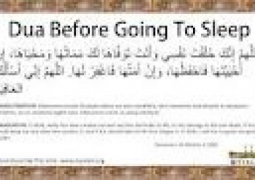Orphans (wal-yatama), recipients of sadaqah
There are two types of fasting: Obligatory and voluntary. Obligatory can be further subdivided into the fast of Ramadan, the fast of expiation and the fast of fulfilling a vow. Here we shall discuss the Ramadan and voluntary fasts.
The Fast of Ramadan
The fast of Ramadan, according to the Qur’an, Sunnah and consensus, is obligatory.
The evidence from the Qur’an consists of the following two verses: “O you who believe, fasting is prescribed for you as it was prescribed for the people before you in order for you to gain God consciousness, and, “...The month of Ramadan, during which the Qur’an was revealed, a guidance for mankind, and clear proofs of the guidance and the criterion; and whoever of you is resident, let him fast the month” [al-Baqarah 185].
From the sunnah we have the following statements of the Prophet: “Islam is built upon [the following] five pillars: testifying that there is no God except Allah and that Muhammad is His Messenger, the establishment of the prayer, the giving of Zakah, the fast of Ramadan and the pilgrimage to Makkah.” Talhah ibn ‘Ubaidullah reported that a man came to the Prophet and said: “O Messenger of Allah, tell me what Allah requires of me as regards fasting.” He answered, “The month of Ramadan.” The man asked: “Is there any other [fast]?” The Prophet answered: “No, unless you do so voluntarily.”
The whole Muslim nation agrees that the fast of Ramadan is obligatory. It is one of the pillars of Islam, and if one disputes this, he cannot be called a Muslim.
The Virtues of Ramadan and the Deeds Done During It
Abu Hurairah reported that the Prophet, upon whom be peace, said: “The blessed month has come to you. Allah has made fasting during it obligatory upon you. During it, the gates to Paradise are opened and the gates to hellfire are locked, and the devils are chained. There is a night [during this month] which is better than a thousand months. Whoever is deprived of its good is really deprived [of something great].” This is related by Ahmad, an-Nasa’i, and al-Baihaqi.
‘Arfajah testifies to this: “We were with ‘Utbah ibn Farqad while he was discussing Ramadan. A companion of the Prophet entered upon the scene. When ‘Utbah saw him, he became shy and stopped talking. The man [the companion] spoke about Ramadan, saying: ‘I heard the Messenger of Allah say during Ramadan: “The gates of Hell are closed, the gates of Paradise are opened, and the devils are in chains. An angel calls out: ‘O you who intend to do good deeds, have glad tidings. O you who intend to do evil, refrain, until Ramadan is completed.’”
Muslim relates that Abu Hurairah reported the Prophet saying: “The time between the five prayers, two consecutive Friday prayers, and two consecutive Ramadans are expiations for all that has happened during that period, provided that one has avoided the grave sins.”
Abu Sa’id al-Khudri reported that the Prophet, upon whom be peace, said: “Whoever fasts the month of Ramadan, obeying all of its limitations and guarding himself against what is forbidden, has in fact atoned for any sins he committed before it.” Ahmad and al-Baihaqi related this hadith with a good chain.
Abu Hurairah reported that the Prophet, upon whom be peace, said: “Whoever fasts the month of Ramadan with faith and seeks Allah’s pleasure and reward will have his previous sins forgiven.” This hadith is related by Ahmad and the compilers of the Sunan.
The Consequence of Breaking the Fast of Ramadan
Ibn ‘Abbas reported that the Prophet said: “The bare essence of Islam and the basics of the religion are three [acts], upon which Islam has been established. Whoever leaves one of them becomes an unbeliever and his blood may legally be spilled. [The acts are:] Testifying that there is no God except Allah, the obligatory prayers, and the fast of Ramadan.” This hadith is related by Abu Ya’la and ad-Dailimi. Azh-Zhahabi called it sahih.
Abu Hurairah reported that the Messenger of Allah, upon whom be peace, said: “Whoever breaks his fast during Ramadan without having one of the excuses that Allah would excuse him for, then even a perpetual fast, if he were to fast it, would not make up for that day.” This is related by Abu Dawud, Ibn Majah, and at-Tirmizhi.
Al-Bukhari records from Abu Hurairah in marfu’ form: “Whoever breaks the fast of Ramadan without having a legitimate excuse or being ill, he cannot make up for that day, even if he were to undertake a perpetual fast.” Ibn Mas’ud has also reported this.
Azh-Zhahabi says: “According to the established believers, anyone who leaves the fast of Ramadan without being sick is worse than a fomicator or an alcoholic. In fact, they doubt his Islam and they suspect that he might be a zandiqah and one of those who destroy [Islam].
The Essential Elements of the Fast
The fast has two essential elements (literally, “pillars”) that must be fulfilled for it to be valid and acceptable. They are:
- The Intention
Allah instructs in the Qur’an: “And they are ordained nothing else than to serve Allah, keeping religion pure for Him.” The Prophet, upon whom be peace, said: “Actions are judged according to the intention behind them, and for everyone is what he intended.”
The intention must be made before fajr and during every night of Ramadan. This point is based on the hadith of Hafsah which reported that the Prophet said: “Whoever does not determine to fast before fajr will have no fast” (that is, it won’t be accepted). This is related by Ahmad, an-Nasa’i, at-Tirmizhi, Abu Dawud, and Ibn Majah. Ibn Khuzaimah and Ibn Hibban have classified it as sahih.
The intention is valid during any part of the night. It need not be spoken, as it is in reality an act of the heart which does not involve the tongue. It will be fulfilled by one’s intention to fast out of obedience to Allah and for seeking His pleasure. If one eats one’s pre-dawn meal (sahoor) with the intention of fasting and to get closer to Allah by such abstinence, then one has performed the intention. If one determines that one will fast on the next day solely for the sake of Allah, then one has performed the intention even if a pre-dawn meal was not consumed.
According to many of the jurists, the intention for a voluntary fast may be made at any time before any food is consumed. This opinion is based on ‘Aishah’s hadith: “The Prophet came to us one day and said: ‘Do you have any [food]?’ We said, ‘No.’ He said: ‘Therefore, I am fasting.” This is related by Muslim and Abu Dawud.
The Hanafiyyah and Shaf’iyyah stipulate that the intention must be made before noon (for voluntary fasts). The apparent opinion of Ibn Mas’ud and Ahmad is that the intention may be made before or after noon.
- Abstaining from acts that break the fast
This point is based on the Qur’anic verse: “Eat and drink until the white thread becomes distinct to you from the black thread of the dawn. Then strictly observe the fast until nightfall.”
This is also based on the following hadith: “When the verse ‘Eat and drink until the white thread becomes distinct to you...’ was revealed, I took a black thread and a white thread and placed them underneath my pillow. During the night I looked at them to see if I could distinguish between them. In the morning I went to the Messenger of Allah and mentioned that to him and he said: ‘It is the black of the night and the white of the day.’”
To be continued




